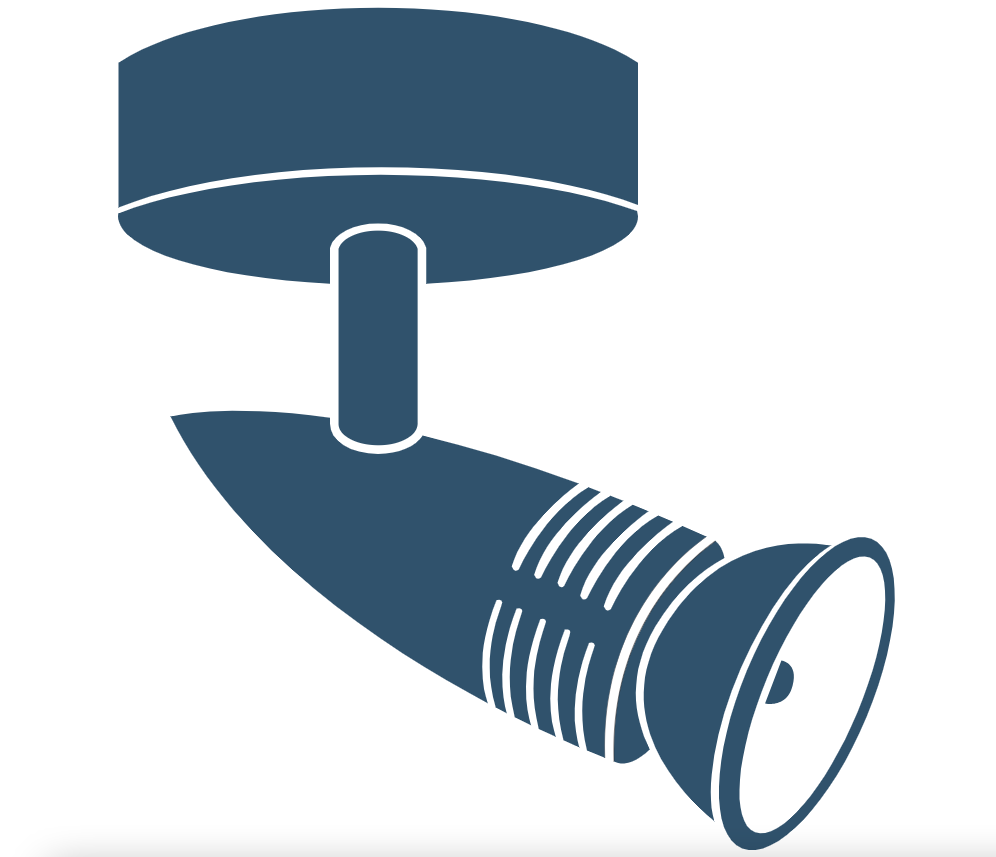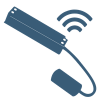LED strip lights (often referred to as LED Tape lights) are often the buyer’s preferred choice due to their versatility regarding lighting plans. These are fantastic options if you are looking to brighten spaces such as your home, office or even commercial property. They are a simple yet resourceful way of manifesting mood lighting in a room.
These flexible strip lights can also be moulded to fit a variety of spaces - providing a glow of strip lights.
One of the more prevalent benefits that these LED strips offer is how quick and easy they are to install - proving to be the perfect option for those who are seeking a practical yet sufficient lighting solution. Often found in outlining cupboards or wardrobes, they are ideal for highlighting a chosen element of a room or area, like an entertainment unit or the doorway of a bedroom.
Regardless of your imagination and lighting plan - you can find suitable LED strip lights to bring it to life.
Do LED Strip Lights Use a Lot of Electricity?
Standard or waterproof LED strip lights are flexible circuit boards that resemble a length of tape or ribbon and are embedded with LEDs (known as light-emitting diodes) on one side. The narrow strip is reinforced by double-sided adhesive, allowing it to be attached to almost any surface for powerful, colourful and creative lighting.
LED strips are available in different lengths ranging from 1m to 10m, making them suitable for a wide range of installation scenarios. If your lighting plan requires a longer length, you can also use multiple strips to achieve the effect you wish to obtain.
Commonly, you will see LED strip lights installed with an aluminium profile. Doing so will hide the strip from view and protect it from fingers, dust and moisture.
Can You Cut LED Strip Lights?
Since LED strips are fixed in length when they are purchased, and it is not always possible to buy light strips of a specific length, our customers have often asked if a light strip can be cut to a fixed length. This mainly depends on the specific product itself. In general, if the light strip has a cut line, it can be cut; if it does not, it is best not to cut it at all.
Our LED strip lights are available in a range of sizes, with lengths ranging from 1m to 10m. However, you are free to cut our LED strips to your desired length.
The best way to do this is to choose strip lights that have designated cutting points marked on the circuit board. Doing so will ensure that you can cut them easily without causing potential damage to the circuitry - or the lights themselves.
How To Connect LED Strip Lights?
To connect your strip lights, we would suggest two different methods. You can either use a connector for easy attachment, or you can solder the wires to the strip - which carries more current and creates a more stable connection. Whichever method you choose, ensure that you are cutting your LED strip lights along the marked cut points to ensure your lights will work if necessary.
To get started, you will first need to take measurements of the intended installation area and choose the strip lights that best suit your needs. From natural, warm and cool lighting to dimmable strip lights and colour-changing bulbs, there are a variety of options to choose from.
Afterwards, you need to decide how you’re going to power your strips. You can wire them into the mains, add a plug to the light or use a battery pack. However, if you’re going to use your household power supply, you’ll need to use an LED driver, too. This ensures an appropriate amount of power reaches the strip lights.
When you’re ready to install your LED strip lights, simply peel off the cover that protects the double-sided adhesive and affix the lights. You might also want to mark this on the surface beforehand or use a spirit level to help you.
Always remember that it’s easy to connect more than one strip of light, so you can use LED strips to illuminate an area of any size. Through connecting clips or a soldering iron, you can join two or more strip lights to create a bespoke lighting layout that will complement any room.
How To Install LED Strip Lights On The Ceiling?
You can use LED strip lights for kitchen ceilings, living room kickboards, and bedroom furniture. It can look rather stunning when they’re installed, particularly if you want to use them to generate a dramatic effect in a room. Fortunately, their easy-to-install design means that you can affix LED strip lights to ceilings quickly, and you won’t need professional help to do so.
You can install LED strip lights around your ceiling by following a simple three-step methodology. Firstly, you need to measure the ceiling perimeter length, then use a high-quality strip with built-in adhesive. Finally, make sure that you are opting to install the strip behind a recession or coving for a beautiful yet luxurious lighting effect.
Before you begin, it is worthwhile experimenting with the lights and deciding where you want to place them to get the best effect. A recessed ceiling may have an in-built cornice that enables you to hide LED lighting easily. However, if your ceiling does not have a cornice, you can place LED strip lights directly on the ceiling or on the walls surrounding the ceiling, depending on what type of lighting effect you want to create.
Then, you simply need to measure the amount of lighting you’ll need and cut the strip lights to size (if necessary). Once your lights are ready to install, you can simply use the double-sided adhesive to affix them securely in place.
Remember - the starting point of your strip lights should be nearest to the intended power supply, as this will minimise the appearance of wires. If you want to ensure wires remain out of sight, you should install either a cove or mould to keep them hidden. Alternatively, you can even use a handy cable concealer cover.
How Do LED Strip Lights Work?
While LED strip lights look like a simple piece of tape or ribbon, they are actually flexible circuit boards that have LED lights embedded on one side. On the other side of the circuit board, there is a powerful double-sided adhesive that enables you to affix the strip lights anywhere you desire.
Typically, strip lights require 12v or 24v DC of power. As most properties in the UK operate with 240v AC power, you will need an LED driver to convert this high-powered AC voltage to lower-voltage DC. All you will need to do is simply incorporate the driver into your setup by wiring it into the mains or adding a plug and your LED strip lights into a socket. Alternatively, choose an LED driver that features a built-in plug and output to minimise the workload.
What Are The Colour Options For LED Strip Lights?
Colour temperature is used to describe how warm or cool a light appears and is measured in degrees-Kelvin. Lower temperatures, around 2700k, are described as a “warm white” and will give off a yellowish-red LED light. Higher colour temperatures will be around 4000K, a “neutral white”, and will look slightly more blueish.
We provide 24v and 12v LED strips in a variety of colours, including natural white, cool white and warm white. There is no rule regarding which tone is best - this mainly depends on the mood and overall ambience you wish to create.
Go Multicoloured:
Why stop at warm and cool light when you can also find LED strip lights in multiple colours? With our range of coloured LED strips, you can add even more drama and effect to your interiors. You can choose from either amber, blue, green or red - although if you cannot decide - our colour-changing LED strip lighting options are the perfect choice for you.
Remote Control And Dimmers:
Our 24 and 12v products can be fully controlled using our range of remote control and wall dimmers. Alternatively, you can also use your smartphone to control your LED lighting with the help of one of our LED controllers. To use this function, all you need to do is download the Lighteez app from either the Google Play Store or Apple’s App Store, and you’ll have complete control over your LED strip lights.
LED Strip Lights For The Kitchen Illumination:
One of the most popular domestic environments for installing strips is in your kitchen. You can easily use 12V LED strip lights to illuminate those awkward corners of your kitchen, living space, and working space. You can use them anywhere you like, from shelves through under cabinet lighting to countertops and kitchen islands. With LED strip lighting, your kitchen will be more functional and sophisticated.
How To Join LED Strip Lights?
If you want to use strip lights to cover a larger area, you can connect more than one strip. This will provide you with the opportunity to create a custom lighting effect that looks spectacular in larger rooms.
There are a variety of ways to join LED strip lights, so it’s easy to find a method that’s best for you. Adding a connecting clip to the end of a strip light makes it easy to connect it to another ribbon light.
Sometimes known as ‘fast connectors’, these are easily applied by hand and will connect LED strip lights in seconds.
Alternatively, you can use a soldering iron to affix two more strip lights to one another permanently. If you’re using an aluminium profile to house your LED light bulbs, for example, there may not be enough room to use a fast connector clip. By using a soldering iron, however, you can ensure that the strip lights are safely joined together and work as one unit. This method works well if you're doing an LED strip under cabinet lighting!
If you’re going to join LED strip lights, be sure to factor this in when you’re choosing which LED driver to use. The more strip lights that are connected, the more power they will require. Before you get started, make sure that the LED driver you’ll be using is capable of powering multiple strip lights.
 2m Black Aluminium Profile, Recessed With Cover and End Caps£8.33 £10.00 Was £15.00 Save £5.00Out of stock
2m Black Aluminium Profile, Recessed With Cover and End Caps£8.33 £10.00 Was £15.00 Save £5.00Out of stock Black Aluminium Surface Mounted Profile, 2m Long With Cover & End Caps£8.33 £10.00 Was £29.99 Save £19.99
Black Aluminium Surface Mounted Profile, 2m Long With Cover & End Caps£8.33 £10.00 Was £29.99 Save £19.99













